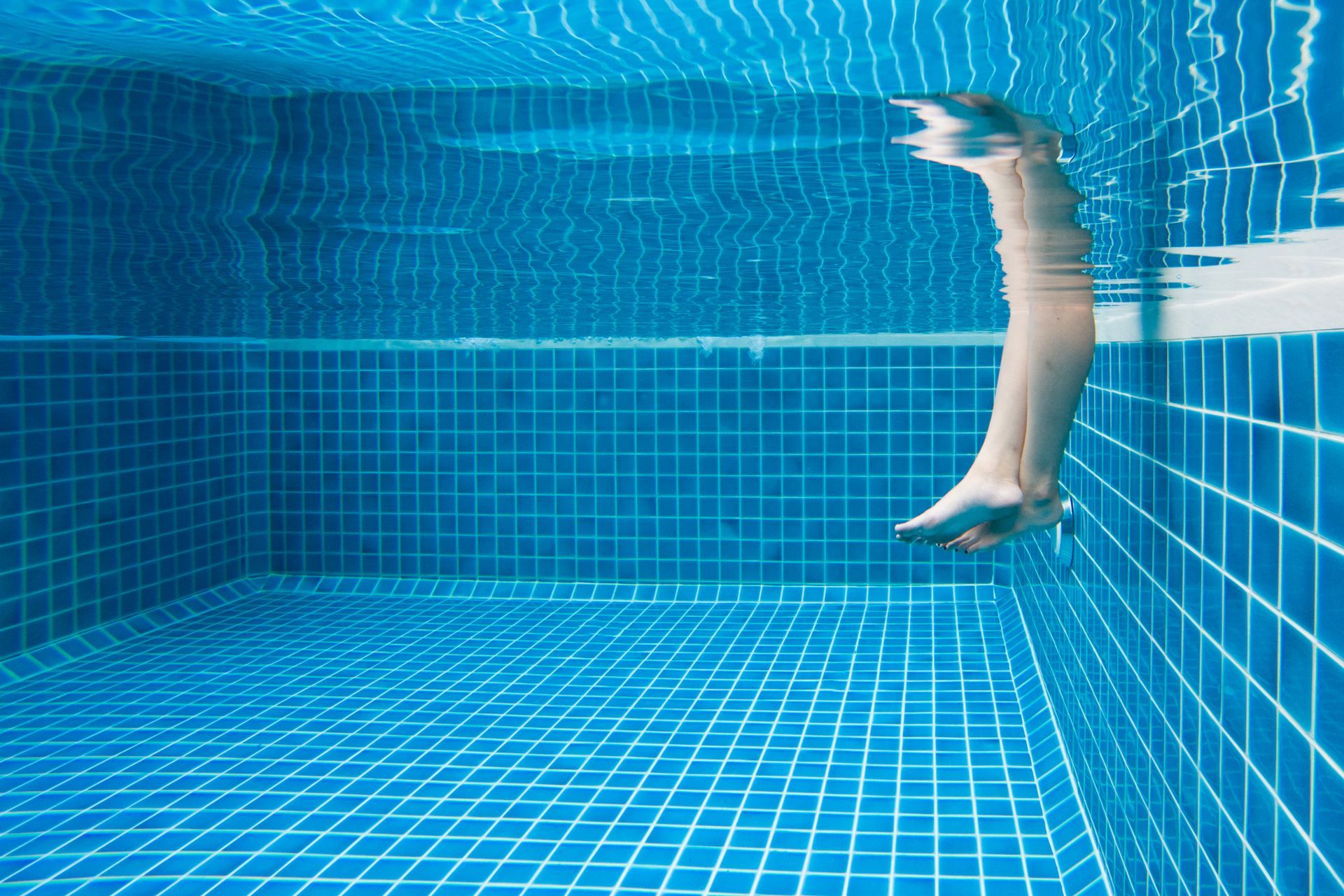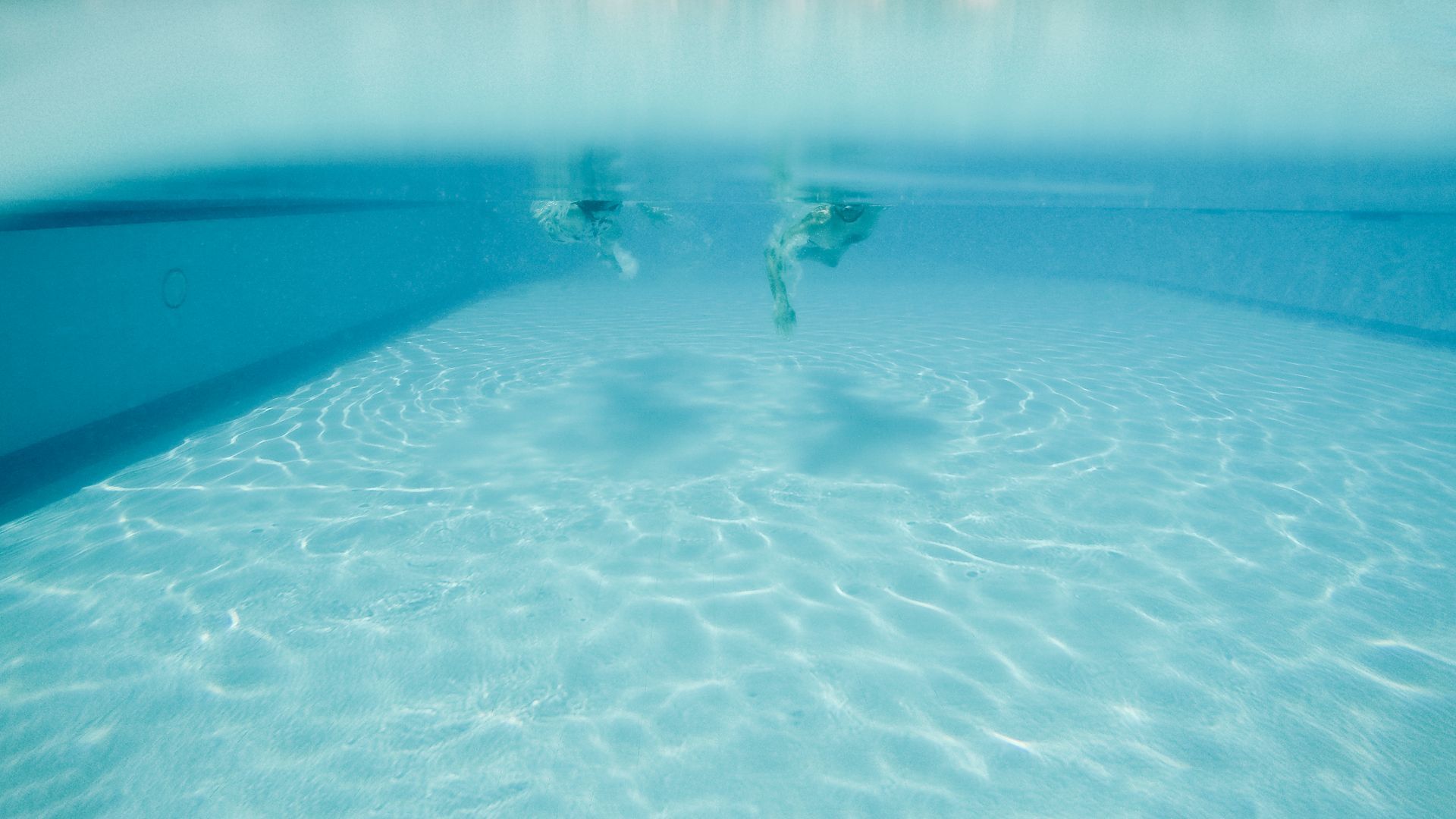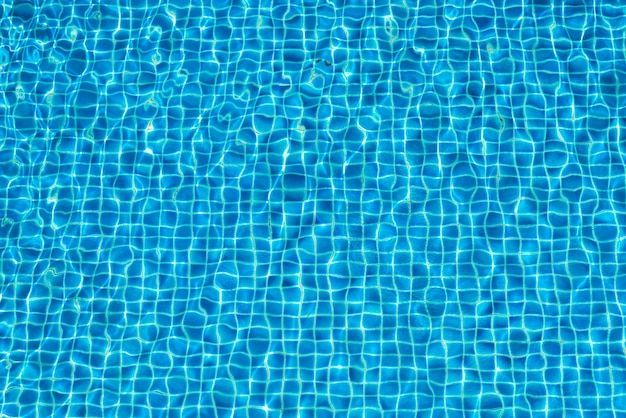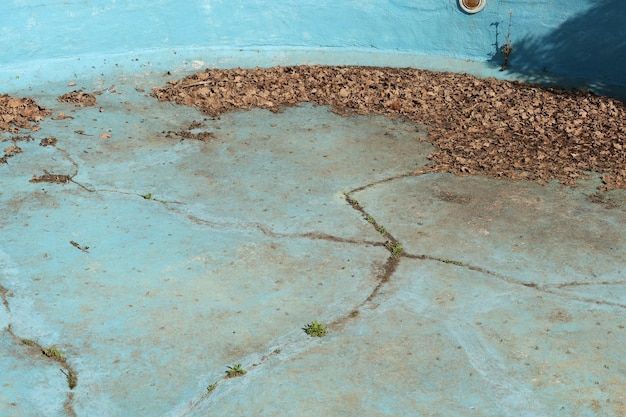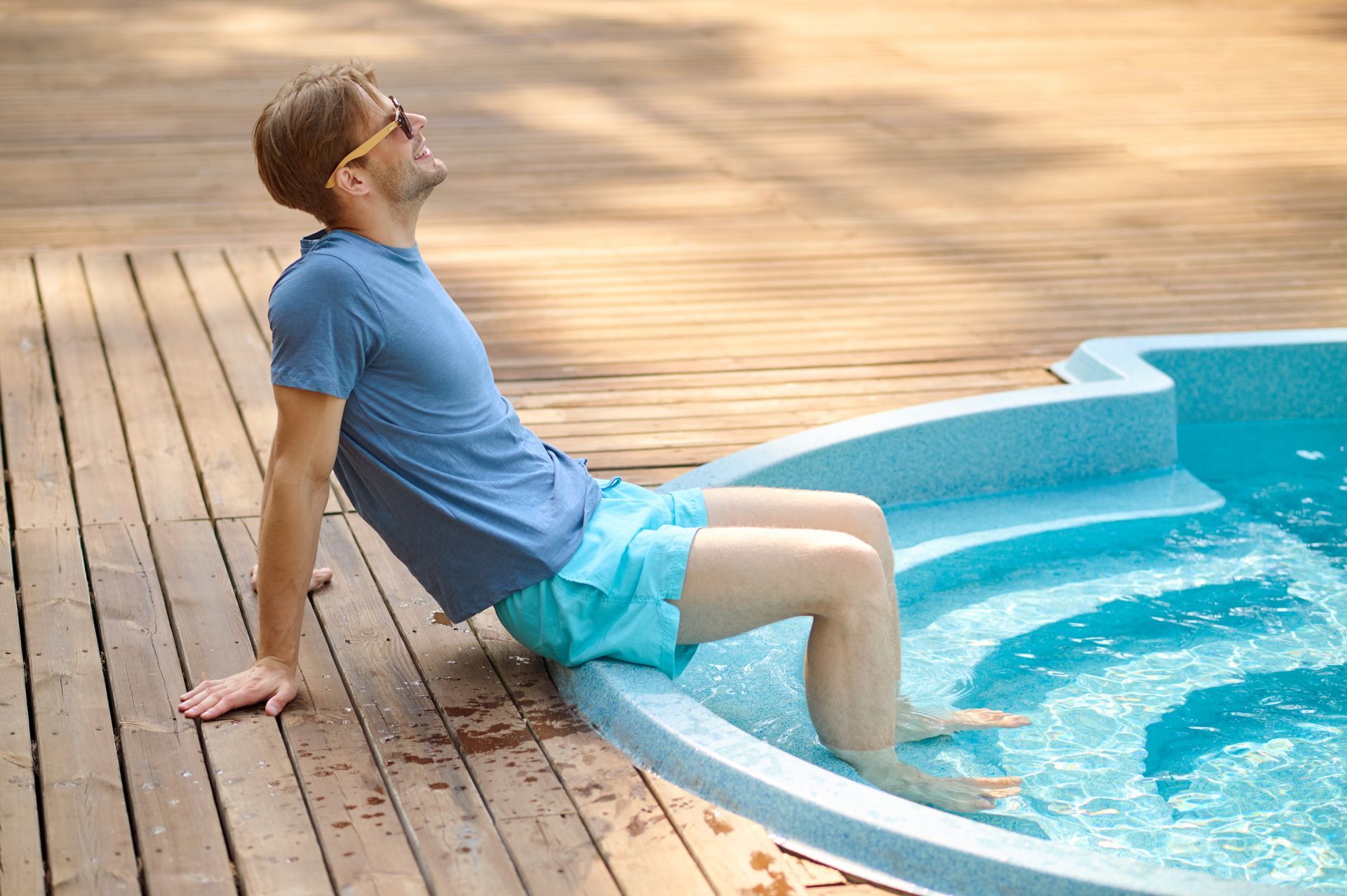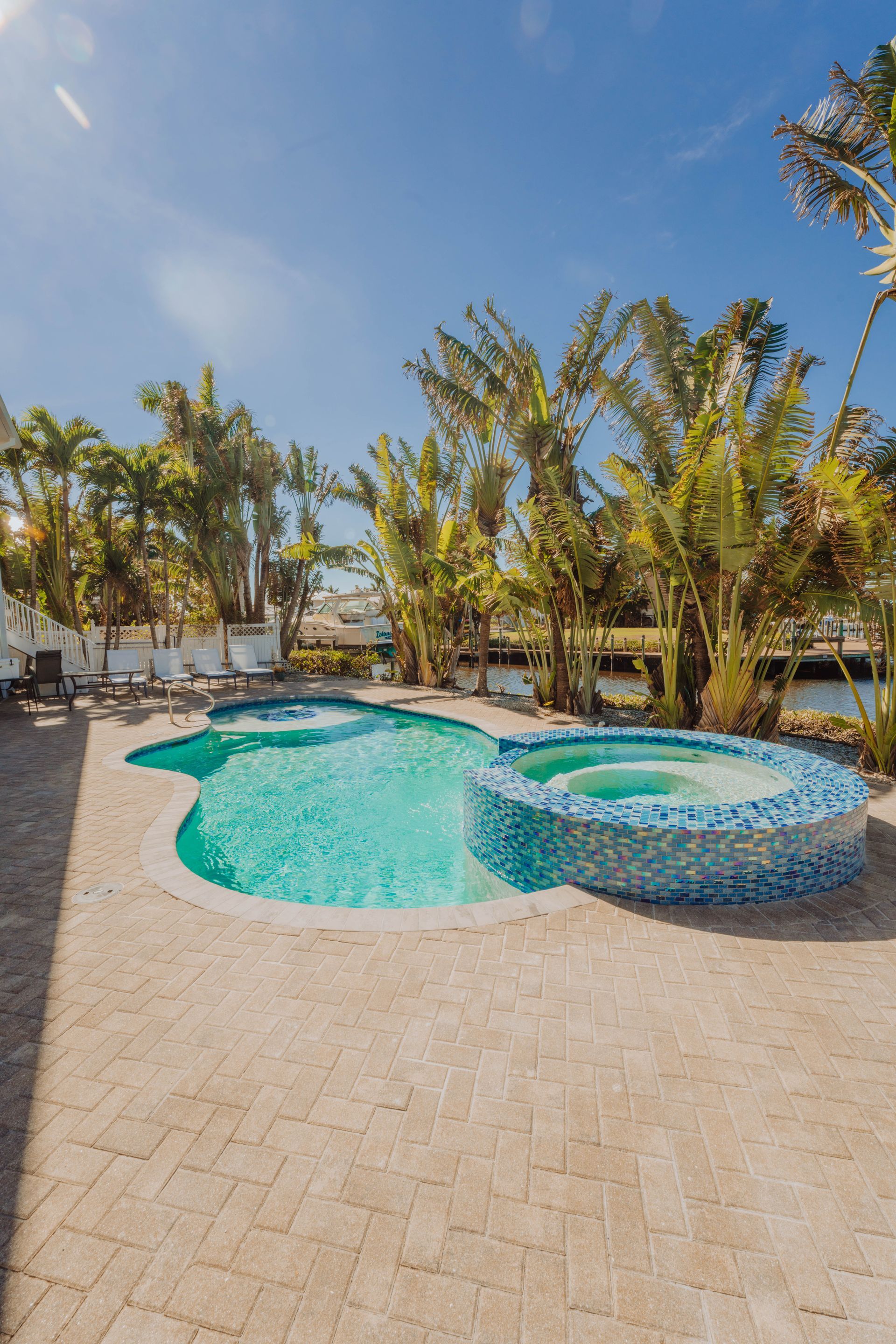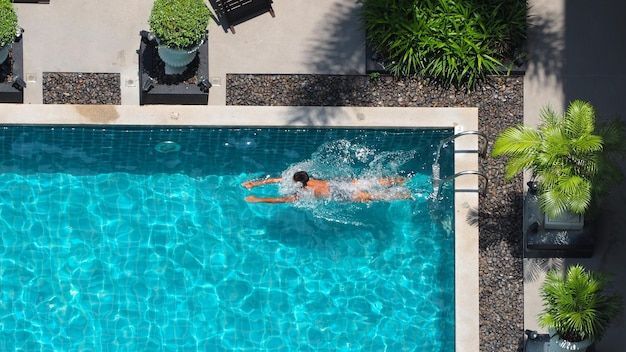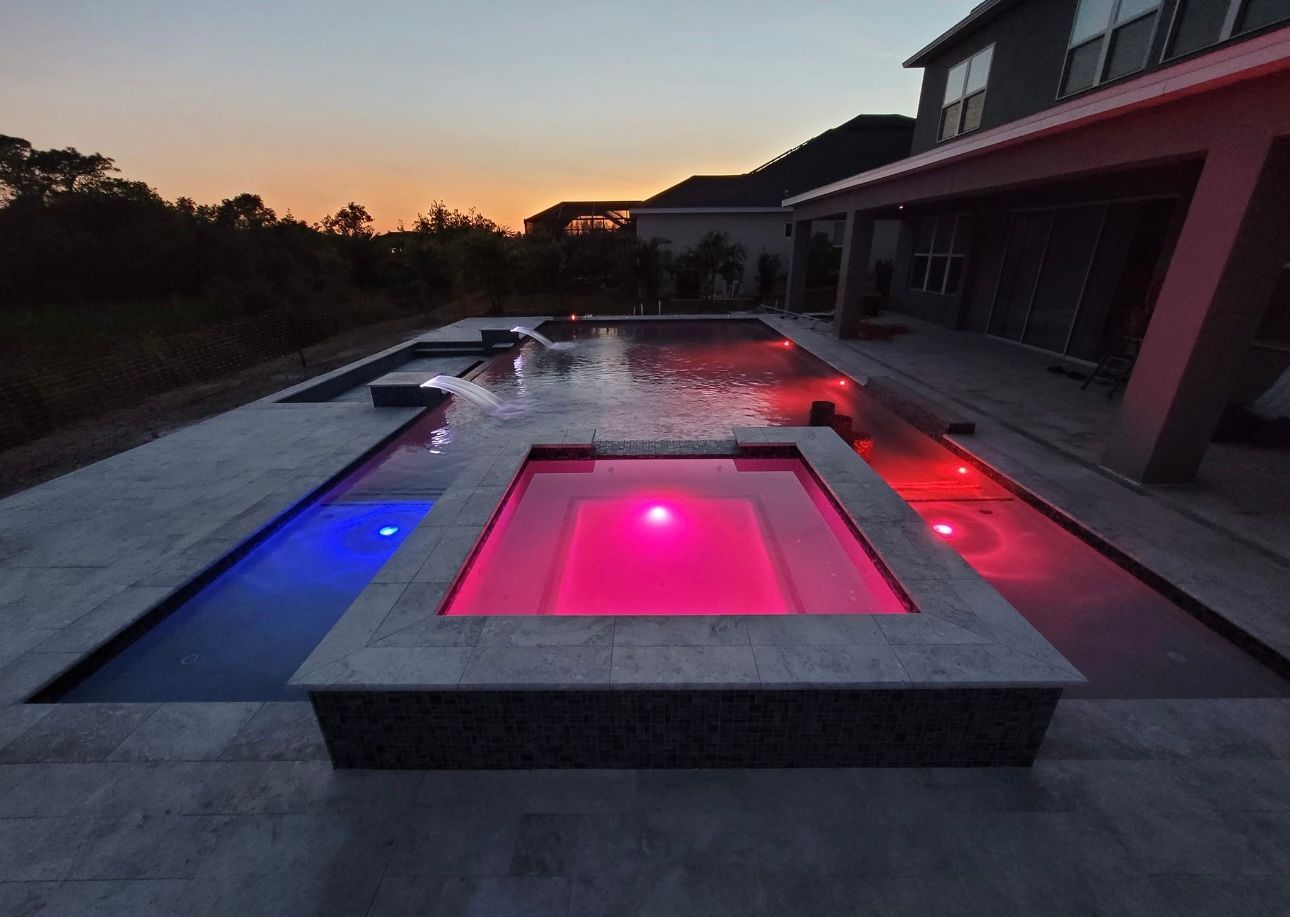GUIDE TO RESTORING YOUR POOL AFTER A HURRICANE
After a hurricane passes, we know that as a pool owner, you're facing the task of restoring your pool to its safe, operational condition. Here at Gold Standard Pools, we've walked this path with countless homeowners just like you, and we truly understand your urgency to get your pool back to normal. While we share your desire for quick results, we've learned that taking the right approach to restoration is essential for your pool's long-term safety and functionality.
Our team doesn't just fix pools – we work with you to understand your specific concerns, timeline, and priorities. Whether you're worried about debris, uncertain about water quality, or concerned about potential equipment damage, you can count on our expertise to guide you through each step of the restoration process.
Initial Assessment
Before diving into pool restoration, safety must be your top priority. A thorough initial assessment helps protect both you and your investment while preparing for proper insurance documentation. Here's your step-by-step guide to conducting a safe and thorough post-hurricane pool assessment:
- Follow local authorities' guidance on when it's safe to return home
- Monitor official communications channels for updates on your area
- Ensure floodwaters have receded from access routes to your property
- Check that no evacuation orders remain in effect for your neighborhood
Document Everything
- Take clear, well-lit photographs of all visible damage
- Capture wide-angle shots of the entire pool area
- Get close-up details of specific damage points
- Include photos of:
* Water condition and level
* Debris in and around the pool
* Equipment and pump house
* Damaged deck or coping
* Fallen trees or large objects in the pool
- Make detailed notes about the condition you find
- Keep all receipts for emergency repairs or cleanup supplies
Electrical Safety First
- Never approach pool equipment if standing water is present
- Look for these warning signs of electrical hazards:
* Downed power lines near the pool area
* Exposed wiring from damaged equipment
* Submerged electrical equipment
* Damaged electrical panels or controls
- Have a licensed electrician inspect your pool's electrical systems before restarting any equipment
- Ensure your circuit breakers remain off until professional inspection
Structural Assessment
- Check pool walls and floor for visible cracks or damage
- Look for these specific issues:
* Shifted or separated decking
* Loose or missing coping stones
* Obvious leaning or movement in pool walls
* Sinkholes or soil erosion around the pool
* Damaged or loose tiles
* Separation between pool and deck
- Mark any areas of concern for professional evaluation
- Note any changes in water level that might indicate leaks
Your Next Steps
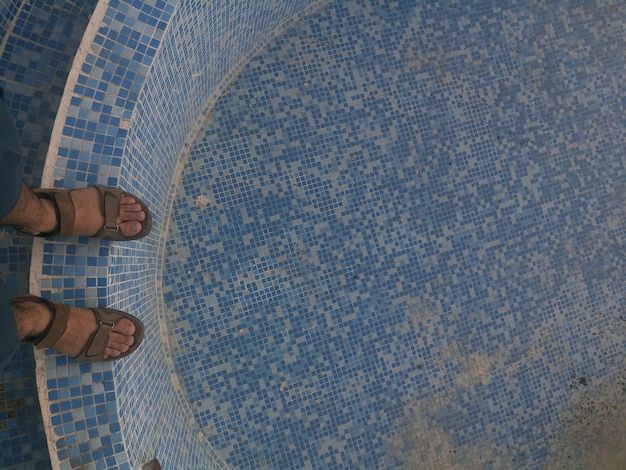
After completing your initial assessment, it's crucial to move forward with a structured approach to ensure nothing is overlooked in the restoration process. Begin by creating a comprehensive list of all observed damage to your pool and its surrounding areas. This thorough approach not only helps with insurance claims but also assists pool professionals in developing an effective restoration plan.
Your next priority should be contacting your insurance provider. Time is of the essence when filing storm-related claims, and prompt notification can make a significant difference in the processing of your claim. Prepare your documentation, including all photos and notes from your initial assessment, before making this call. Be prepared to provide detailed information about your pool's condition before the storm and any maintenance or improvements you've made recently.
It's equally important to reach out to a professional pool service for a thorough inspection. Professional pool technicians have the expertise to identify potential problems that might not be immediately visible to the untrained eye. At Gold Standard Pools, our experienced technicians provide detailed inspection reports that can also support your insurance claim.
It's crucial to resist the temptation to begin repairs immediately, even if the damage seems minor. Without professional guidance, well-intentioned DIY repairs could potentially void your insurance coverage or create more serious problems down the line. Pool systems are complex, and what might appear to be a simple fix could be masking more significant underlying issues. Wait for professional assessment and guidance before taking any corrective actions beyond basic debris removal.
Water Removal and Debris Cleanup
- Remove excess water if pool is overflowing
- Clear large debris from pool and surrounding area
- Clean skimmer baskets and pump strainers
- Remove any sunken debris from pool bottom
Equipment Inspection
- Do not turn on pool equipment until properly inspected
- Check for water damage in pump motors
- Inspect electrical connections and wiring
- Evaluate filter system for damage
- Test all automation systems
Water Treatment
- Test water chemistry thoroughly
- Shock treat the pool with appropriate chemicals
- Balance pH and chlorine levels
- Run filtration system continuously once cleared
- Monitor water clarity and chemistry daily
Professional Repairs: Ensuring Safe and Lasting Restoration
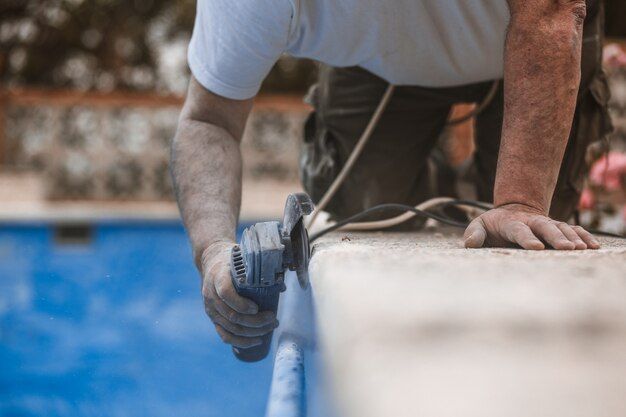
When it comes to post-hurricane pool repairs, professional expertise isn't just helpful – it's essential. At Gold Standard Pools, we conduct comprehensive inspections and repairs that address both visible damage and potential hidden issues that could cause problems later. Here's what our professional assessment and repair process entails:
Structural Integrity Evaluation
Professional pool technicians begin with a thorough structural assessment that goes far beyond surface-level observation. Using specialized equipment and years of experience, we examine every aspect of your pool's structure. This includes checking for subtle signs of structural compromise that might not be immediately visible to the untrained eye.
We inspect the pool shell for hairline cracks, evaluate the bond beam for potential stress points, and assess the deck's relationship to the pool structure. Even minor structural issues, if left unaddressed, can develop into major problems that compromise your pool's longevity and safety.
Equipment Assessment and Repair
Your pool's mechanical systems require expert attention after exposure to hurricane conditions. Our certified technicians conduct detailed evaluations of your entire equipment system, including:
- Pump motor functionality and bearing condition
- Filter system integrity and media condition
- Heater operation and internal components
- Automatic cleaner systems and their components
- Chemical feeding equipment and safety systems
- Control systems and automation technology
We not only identify current problems but also spot potential issues that could develop due to storm exposure. This proactive approach helps prevent future equipment failures and extends the life of your pool systems.
Plumbing System Inspection
Hurricane damage to pool plumbing can be particularly deceptive. What appears to be functioning normally might have subtle damage that could lead to significant problems over time. Our plumbing inspection includes:
- Pressure testing of all plumbing lines
- Inspection of visible pipes for stress or damage
- Evaluation of skimmer and drain connections
- Assessment of return fitting integrity
- Checking for proper water flow and circulation
- Investigation of any potential underground leaks
Electrical System Safety
Perhaps the most critical aspect of post-hurricane pool repair is the electrical system assessment. Our licensed electricians conduct thorough evaluations of all electrical components:
- Main power connections and grounding systems
- Control panel integrity and functionality
- Light fixtures and wiring
- Bonding and grounding connections
- Timer systems and automated controls
- Safety shut-offs and GFCI protection
We ensure all repairs meet or exceed current safety codes and standards, providing you with peace of mind about your pool's electrical safety.
Professional Repair Process
Once our comprehensive inspection is complete, we develop a detailed repair plan that:
1. Prioritizes safety-critical repairs
2. Addresses all damaged components systematically
3. Updates outdated systems when necessary
4. Implements preventive measures for future storm protection
5. Ensures compliance with all current building codes and regulations
Our experienced team coordinates all aspects of the repair process, from obtaining necessary permits to final testing and certification. We understand that restoring your pool after a hurricane can be overwhelming, which is why we handle every detail with professional care and attention.
Remember, attempting DIY repairs on complex pool systems can void warranties, compromise insurance claims, and potentially create unsafe conditions. Trust our experienced professionals to restore your pool properly.
Important Warning About Unlicensed Contractors
In the aftermath of hurricanes, many unlicensed contractors offer pool repair services at reduced rates. While these lower prices might be tempting, especially during stressful times, working with unlicensed contractors can lead to:
- Improper repairs that create safety hazards
- Poor quality work requiring costly corrections
- Void equipment warranties
- No insurance coverage if something goes wrong
- Potential legal issues
- Long-term structural problems
Choose a Licensed Professional
Gold Standard Pools is a fully licensed and insured pool contractor. We offer:
- Professional post-hurricane restoration
- Licensed technicians
- Warranty-backed repairs
- Proper permits and documentation
- Insurance compliance
- Long-term reliability
Contact us for professional, reliable pool restoration services. Your pool is a significant investment - trust its care to properly qualified professionals.
